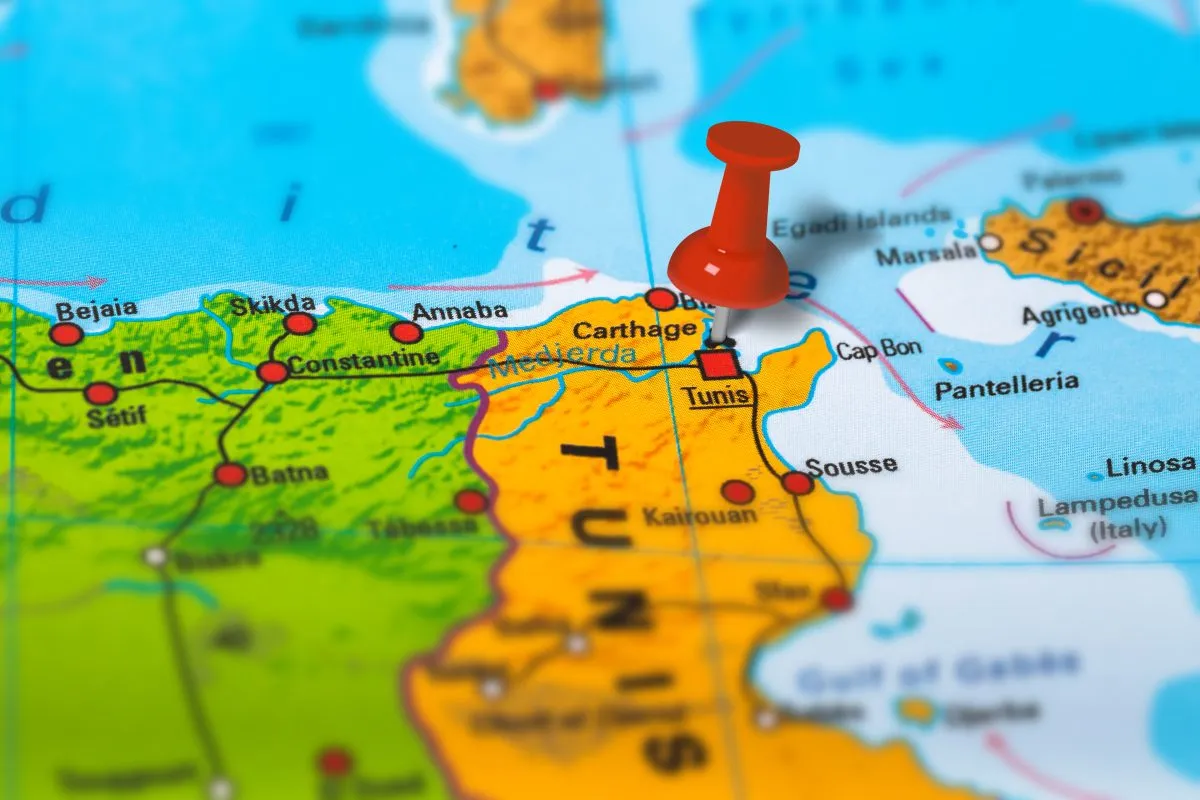
CDC Tunisia is a public investor created in 2011 to support Tunisia’s national development priorities by supporting viable enterprises including startups and innovative projects. One of its aims is to stimulate entrepreneurship, innovation and inclusive economic growth.
Nejia Gharbi, the Deputy Managing Director of the institution, is a senior civil servant. She worked in high management positions in the national phosphate industry and for Tunisair. She was also in charge of the Central Unit of Investors and Management in the Prime Minister’s office before taking up her position at CDC. She was also Chairman of STB bank between 2015 and 2021. Since 2021, she has been the Chairman of BNA bank. She holds a master’s degree in management from the FSEG in Tunis and a diploma from the Ecole Nationale d’Administration (ENA).
You are working, with the World Bank, to promote youth employment and develop the startup ecosystem in Tunisia. Can you tell us about how this initiative is going?
Tunisia has an unemployment rate of around 15%, and it’s even higher amongst the youth. CDC is working through dedicated interventions to boost employment and entrepreneurship.
To be more specific, let me mention some of these actions. We have two initiatives with the French Development Agency (AFD): EnLien (Entrepreneuriat et Lien social – Entrepreneurship and Social Link), and Fast (Femmes et Accélération pour les Start-ups et TPE – Women and Acceleration for Startups and VSEs); and secondly, a project with the World Bank entitled Innovative Startups and SMEs.
This World Bank project is part of the national strategy, ‘Startup Tunisia’, a project under the supervision of the Ministry of Communication Technologies, and in collaboration with the private sector, civil society, and international partners to develop a dynamic ecosystem of startups from Tunisia.
Tunisia unveiled its Startup Act a few years ago which has become a blueprint for many countries.
The Innovative Startups and SMEs project covers two pillars: Startup Invest – a new investment framework designed to deliver a solid and dynamic Venture Capital (VC) industry; and Startup Ecosystem – a new support scheme for Startups and the Ecosystem Support Structures (SSO).
Financed by the World Bank, the $75m project aims to increase access to finance and support the growth of innovative startups and SMEs and at the same time boost economic and employment prospects for Tunisian youths, and to promote Tunisia as a technological destination.
The project will boost the holistic support for innovative startups and SMEs since it will finance equity and quasi-equity investments and help business incubators, and accelerators, to improve and extend their programmes. In particular, projects managed by women or located in the country’s interior regions, which have in the past attracted less investment, will receive special attention.
Executed by the CDC in partnership with Smart Capital, the project will contribute to the creation of more than 1,800 direct jobs including 30% for women and 20% for youths aged between 18 to 35. This will reinforce the actions carried out to speed up economic revival post Covid-19.
The project includes three components: financing through equity and quasi-equity funds for innovative startups and SMEs, through ANAVA (a €100m target-size fund of funds), and Innovatech (a €34m target- size fund); support for innovative startups and SMEs; and the management of the project and capacity-building.
More than 800 startups were able to benefit from this scheme by the end of 2022. Women run 35.2% of these registered startups.
The ANAVA Fund of Funds will invest at every stage of startup development including seed, early and growth. In 2022, ANAVA’s invested in the first two Child Funds (underlying funds in the startup sector) – the 216 Capital Fund I (a seed stage fund managed by 216 Capital Ventures) and Badia Investment Fund 2 (BIF, a late-stage fund managed by Silicon Badia). The total amount subscribed by ANAVA in the two funds was €11.2m, of which €3m was already invested.
Is finance still the biggest constraint when it comes to startups?
They have problems of access to market, some legal issues in relation with new activities, issues with the national currency framework and difficulties in fundraising.
Regarding the access to market and legal framework, there is a political will to make things easier and to facilitate doing business in Tunisia.
There is also a project to update the currency framework to ease foreign exchange operations.
For fundraising, we hope that the acceleration of ANAVA investments will resolve a large part of the problem.
The government and local organisations are already taking steps to stimulate the ecosystem. Digital Tunisia 2020 aims to update the technological infrastructure and position the country as a regional business hub.
What gives you reason for optimism in this particular domain, startups?
The Tunisian Startup ecosystem created $25.6m in value between 1 July 2019 and 31 December 2021.
Tunisia was ranked first in the MENA region in terms of accessible talent in the GSER 2022. The ecosystem is also in the Top 10 in the MENA region according to Bang for Buck, which measures the amount of runway that tech startups acquire, on average, from a venture capital round.
Tunisia is also among the Top 10 emerging ecosystems in terms of talent, research activity and patents, but also in terms of available funding for startups.
Tunisia has gained a reputation as an engine in the development of the startup ecosystem in Africa. Indeed, many African countries come to Tunisia to learn from its successful experience and benefit from its expertise in the field.
A key element to highlight is the growing involvement of Tunisian women in the startup ecosystem. 34.4% of startups are co-founded by at least one woman, while 2.3% are founded exclusively by women.
What are the main sources of your funding?
CDC has different sources of funding, namely the National Savings, the Legal Deposits with the Treasury, its equity and other resources coming from DFIs and donors. All resources are allocated to approved projects within a clear investment framework and in accordance with its careful risk strategy.
Do you lean to any particular economic sectors?
No sector is excluded. Projects are selected according to their potential to maintain and / or develop impacts in line with the CDC’s strategy: large-scale projects mainly in public-private partnership, green projects, projects around the energy and digital transitions, strategic interventions in the financial market – and of course, support to startups and SMEs remains the cornerstone of our intervention.
The development of the renewable energy sector is a major axis of CDC’s strategy. We are actively involved in financing green projects through partnerships with public and private players.
In addition, we are working to raise awareness of the challenges of the energy transition and to promote green technologies in the country.
What is your strategy over the next few years?
CDC’s remarkable achievements in its portfolio clearly demonstrate, 10 years after its creation, that it has become a key player in the national economy.
By 2025, CDC aims to become a benchmark investor, innovator and creator of value, supporting the recovery by helping to address social, economic and environmental challenges.
CDC’s strategy for the coming years is to continue to support investment projects in strategic sectors for Tunisia. We also plan to strengthen our support to startups and SMEs. In terms of growth, we plan to increase our balance sheet by targeting large-scale projects with a wide range of possible maturities.
We are also developing a green financing policy that will allow us to contribute to the fight against climate change while generating attractive financial returns.
We plan to intensify our intervention in environmentally friendly projects, especially as CDC is awaiting accreditation to the Green Climate Fund and will be the eligible national entity for this type of project.
Our forecast extends to the investment axis and also on the financing axis by working on green bond missions.
In addition to these, we are working on infrastructure projects financed in PPP mode, especially in the areas of sanitation, desalination, wastewater and waste treatment. CDC also works in the transport sector with its involvement in two major projects: the Enfidha deepwater port and the logistics zones.
I believe there’s a partnership with Niger.
Tunisia’s CDC signed a cooperation agreement with Niger’s CDC in April of 2019 with the aim of strengthening their partnership and collaboration in the economic and social development of their respective countries.
The agreement will enable both institutions to support the financing of SMEs and SMIs, provide technical assistance to urban projects and business parks, as well as expertise in civil engineering, finance and institutional cooperation within the Forum des Caisses de Dépôt.
An inter-fund mutual fund is being developed, which we will be pleased to be announcing very soon!
Want to continue reading? Subscribe today.
You've read all your free articles for this month! Subscribe now to enjoy full access to our content.
Digital Monthly
£8.00 / month
Receive full unlimited access to our articles, opinions, podcasts and more.
Digital Yearly
£70.00 / year
Our best value offer - save £26 and gain access to all of our digital content for an entire year!
 Sign in with Google
Sign in with Google 



